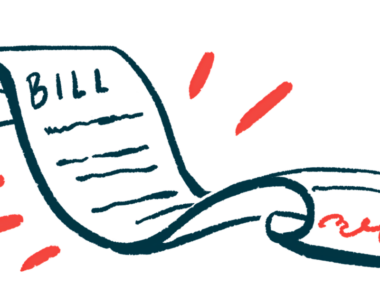Pharmather Seeking FDA Orphan Drug Designation for Ketamine for Dyskinesia
Written by |

Pharmather filed an application with the U.S. Food and Drug Administration (FDA) requesting orphan drug designation be given to ketamine for treating the involuntary jerky movements — known as dyskinesia — that are associated with levodopa use in people with Parkinson’s disease.
This condition, known as levodopa-induced dyskinesia or LID-PD, affects approximately half of those taking levodopa within the first four or five years of treatment, and roughly 80% after 10-to-12 years of levodopa use.
“We are excited to announce our FDA [orphan drug designation] application submission for ketamine, as it would grant us special status and accelerate the development of ketamine to treat LID-PD, a significant unmet clinical need in Parkinson’s Disease,” Fabio Chianelli, CEO of Pharmather, said in a press release.
The FDA grants orphan drug status to investigational therapies that have the potential to treat a rare disease — defined in the U.S. as a disorder affecting less than 200,000 people — for which there is a high unmet need. The designation also carries certain benefits, such as additional support from the FDA, tax credits, waivers for some administrative fees, and a seven-year period of marketing exclusivity, should the treatment win approval.
Ketamine is an FDA-approved anesthetic and painkiller, often used to start and maintain anesthesia during brief surgical procedures. Its use is limited due to its psychological effects, which can include vivid hallucinations, agitation, and confusion, and due to its potential for abuse as a recreational drug.
In a case study series, investigators from the University of Arizona showed preliminary evidence indicating that low doses of ketamine provided safe, tolerable, and potentially long-term reductions in dyskinesia, depression, and pain in people with Parkinson’s.
These findings were later confirmed in a follow-up study using a mouse model of LID-PD, which reinforced ketamine’s therapeutic potential as a treatment for dyskinesia.
Pharmather recently entered into an exclusive licensing agreement with the University of Arizona, to develop ketamine as a treatment for dyskinesia associated with levodopa in Parkinson’s patients.
Scott Sherman, MD, PhD, and Torsten Falk, PhD, both associate professors at the University of Arizona College of Medicine and authors of the previous studies, are currently working with the university’s office of technology transfer (Tech Launch Arizona) to patent the findings.
Pharmather is now planning to launch a Phase 2 trial before year’s end to start treating LID-PD patients with low doses of ketamine.
“The FDA [orphan drug designation] application leverages established clinical research and intellectual property that we have exclusively secured for ketamine in LID-PD and it complements our strategy in pursuing an FDA investigational new drug application to conduct a Phase 2 clinical study in LID-PD later this year,” Chianelli said.


